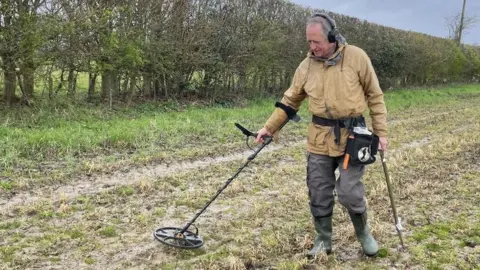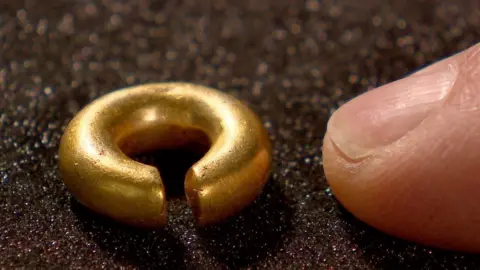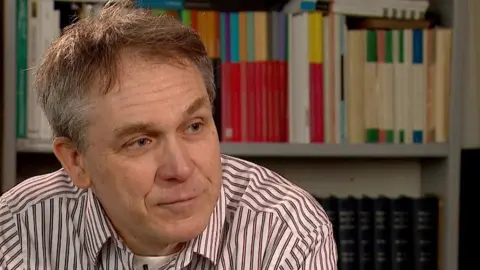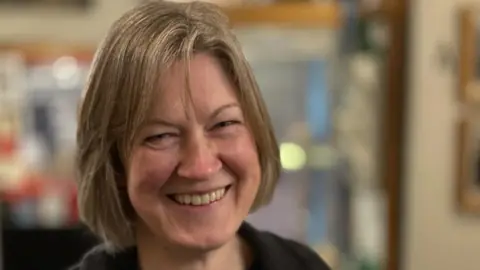Norfolk metal detecting: 'Nothing to do with the stresses of today'
 Mike Liggins/BBC
Mike Liggins/BBCMetal detecting offers "escapism - it's nothing to do with the stresses and strains of today, the politics, the wars", a keen detectorist has said.
Andy Carter was describing the hobby's appeal after donating a recent Bronze Age ring to Norwich Castle Museum.
Norfolk historian Helen Geake agreed and said "archaeology is a safe space".
The National Council for Metal Detecting had a 10% increase in membership in 2020 to 2021, and currently has more than 30,000 members.
 Mike Liggins/BBC
Mike Liggins/BBCMr Carter found the Bronze Age penannular - which means it has a small part of its circumference missing - ring in a field in north Norfolk in September.
More treasure was found in Norfolk last year than any other county, according to figures from the Department for Digital, Culture, Media and Sport.
The detectorist - and the landowner who gave him permission to search - jointly donated the ring to Norwich Castle Museum and Art Gallery, to the delight of its curator of archaeology Tim Pestell.
 Mike Liggins/BBC
Mike Liggins/BBCHe said "our understanding of the past has changed" had changed as a result of the county's many treasure finds since the Treasure Act was passed in 1996.
"I do often think what's it going to be like in another 20 years' time and that's really exciting," he added.
Mr Carter described another aspect of the hobby's appeal: "You've got something in your hand which may not have been held for 2,000 years.
"It's a bit of history and normally you see history behind a bit of glass in a museum - you've got it in your hand."
 Mike Liggins/BBC
Mike Liggins/BBC
Metal detecting and the law
- No search can begin until permission has been given by the landowner
- All finds belong to the landowner
- Any find in England, Wales and Northern Ireland that is more than 300 years old, made of gold or silver, or found with gold or silver artefacts, could be treasure under the 1996 Treasure Act
- These must be reported to the appropriate county finds liaison officer
Source: Portable Antiquities Scheme

Dr Geake records Norfolk's treasure finds as the county's portable liaison officer and has previously praised the county's "responsible detectorists".
She said the growth in popularity of metal detecting was because "[in] these days of worry and the cost of living crisis and so on, archaeology is a safe space".
The government has proposed broadening the definition of the Treasure Act following the surge in the number of detectorists unearthing historical artefacts.

Find BBC News: East of England on Facebook, Instagram and Twitter. If you have a story suggestion email [email protected]
